The third edition of Z-Axis – the biennial conference titled- “Designing Equitable Cities”, organised by the Charles Correa Foundation was inaugurated on September 6 at the Kala Academy.
Professor of Urban studies at London School of Economics (LSE), Richard Burdett delivered the Charles Correa Memorial Lecture, where he spoke on how to shape equitable cities in an urban age.
Burdett started the lecture by emphasising the need for an equitable environment in which the city of an urban age can flourish. “Shaping Cities in the Urban Age does more than put cities on the map. The current urban trends are making cities more fragmented, less equitable and environmentally more damaging.” He also argued powerfully towards an integrated social environment that can inform and inspire city-makers that are shaping an increasingly urban world.
Quoting Charles Correa, “We should improve fundamentally the governance of our cities – for, in the final analysis, they will decide the future of this nation” Burdett highlighted that the city belongs to the citizens. It’s up to them to shape the city and the citizens should be a reckoning force behind the main political and economic forces that will help in shaping up the urban societies.
Speaking about the rapid rise of cities in this era, Burdett said that more people will be living in cities by 2050 and most of this growth will take place in Asia and Africa. “But nearly 80 percent of the urban infrastructure that will exist in 2050 has yet to be built. The decisions we take in the next decades will affect humankind for generations to come.”
Burdett also spoke on the role of architecture and how can design ingenuity be harnessed to respond to everyday social and environmental battles by putting forth the example of 2012 London Olympics. Basically what follows after these mega sporting events get over are the sorry states of abandoned stadiums and peeling paint telling tales of broken promises and soured dreams, but not in the case of stadiums of London Olympics. The permanent sports venues have led the way to public spaces: Zaha Hadid’s curvy aquatics centre, whose soaring construction costs caused much unrest when it was being built, became a public facility and the Olympic stadium today is home to the Premier League side West Ham United.
Describing the process of urbanisation is a wide series of concepts, Burdett ended the lecture on a note saying, since cities are ever-evolving entities, “Urbanisaton is necessarily an open process that is both iterative and incomplete.”
AUSTIN DIAS | NT GoGoaNow
Pic Credit- Hemant Parab
Featured Events
Artist and educator Vaishali Lall is organising a summer camp for 8 years to 13 years from April 1 to 26 in two batches of 10.30 a.m. to 12.30 p.m. and 3.30 p.m. to 5.30 p.m. at Ujwal Art Gallery, Art Street, Vagator. Details: 8999545205.
Bookworm’s annual jumble sale will be held on April 27 and 28 at SAG, Campal. If you have clothes, household items, electronics, jewellery, books, bags, linen, or toys in good condition, please add them to our collection for fundraising. You can drop them at House No.127, Mala, Panaji. Details: 9823222665.
Featured Blog
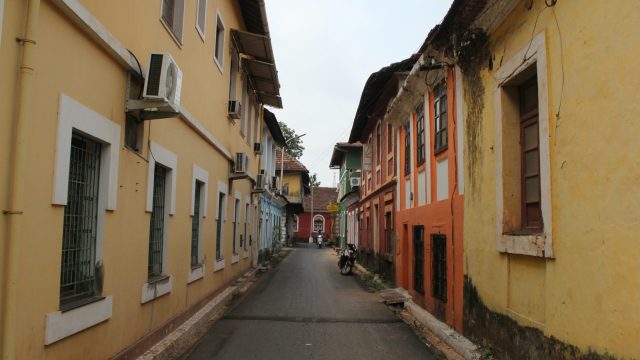
Fontainhas – Goa’s Latin Quarter
Experience the vibrancy of Portuguese architecture in this quarter of Panaji. The Fontainhas is the oldest Latin Quarter located in Panaji. In the late 1700s, this locality belonged to a Goan expat who was also known as ‘Mossmikar’, as he hailed from the Portuguese colony of Mozambique in East Africa. Since this place was an open space it was called as ‘Mollo’, finally leading to be identified as ‘Mala’.The ‘Mossmikar’ later converted this land into coconut plantation hence called as Palmar Grande. The Fontainhas became more civilized when the Portuguese moved out from Old Goa to Panjim in the 1840’s due to sanitary problems that led to repeated outbreaks of plague in Old Goa.Since this was a plain area, it became the first choice of habitation for the Portuguese. When the Kadambas ruled Goa, what we now know as Panaji was called as Pancham Khali. The Portuguese called it as Novo Goa or New Goa as they had moved out of Old Goa.The city of Panaji was built around Fonte de Phoenix. Fonte De Phoenix (Fountain of Phoenix) is a water reservoir which was constructed in the Portuguese era. On the top of the fountain there was a plate which […]
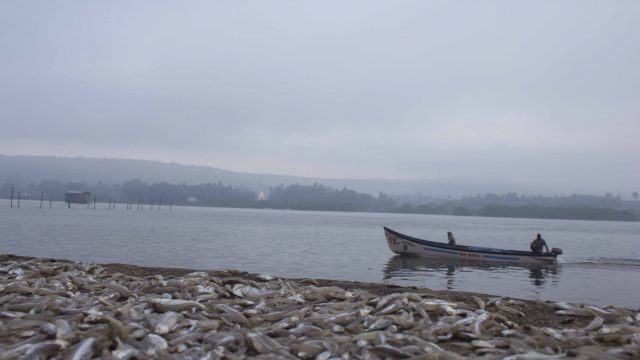
The Goan Fish Tales
Fish is considered as the staple diet of the Goan people. All humans use readily available edible resources and slowly develop a culture around it and the knowledge is passed from generation to generation. Fish became an integral part of Goan diet from prehistoric times (50000-60000 years before present). Goa has an unenviable culture showcasing different ways communities look at, understand, worship, love/hate, catch, cook and serve fish. Goa being rich in freshwater and marine ecosystems offers free, highly diverse (about 250 species of fish and shellfish) fisheries resources so the culture of catching fish developed much before animal husbandry or agriculture. Due to early semi-nomadic settlers who camped first in Mandovi and Zuari river basins about 50-60000 years ago and developed the practice of catching fish using different gears. Fish was a staple diet in ancient Goa even before the caste system was developed so almost all ethnic Goan communities are found to utilize fish in their food but there are clear taboos about meat. After the advent of GSB (Goa Saraswat Brahmins) migrants the legend of Sage Saraswat saving the Vedas by consuming fish from Vedic river Saraswati became popular and the Brahmins too justified consumption of fish […]

Whirlpools, crocodiles, and more. Find out what the life of a fisherman is like.
A cool breeze blows and the water laps gently against the river bank. A man walks towards the river carrying his floating net. He gets into the boat and uses his strong arms to expertly row to the desired spot to cast the net for catching fish. SHERYL GONSALVES | NT GOGOANOW This happy-go-lucky Goan is Prakash. He goes fishing 2-3 times a week as it is one of his ways of earning a living. During his childhood, he had a tough life as his parents struggled to feed him and his seven siblings. From a young age, he was a keen learner. Just by watching different people at work, he was able to pick up various other trades like carpentry and vegetable cultivation. He has observed that during the summer there is more fish to catch. According to him, the months of April, May, and June are the best months to fish. During the rainy season, he avoids fishing as the river waters get choppy. In the past few years, fishing has become a bit tougher for him because of crocodiles and seals. Seals move very quickly to steal the fish they catch and even come to bite them. […]

Azulejos- Tiles, Thoughts and Art
Velha Goa Galeria Velha Goa Galeria is a place full of various creative pieces. They sell products like ceramic tiles, clay items, glassware, tableware, and cutlery. The majority of their products are Azulejos (hand painted glazed tiles). The price range of the products is approximately between Rs.300 and Rs.15,000. They also conduct workshops and hold exhibitions. . . Address- H.No.191, Rua de Ourém, Fontainhas, Altinho, Panaji, Goa . Telephone: 98221 59881 Azulejos de Goa The Portuguese style craft, Azulejos, is beautiful. These hand-painted tiles take hours to make. Orlando Noronha went to Portugal and started getting into this craft. He says, “ I always wanted to do something different. It’s an art that I learned in Portugal in 1998 as a hobby and later on when I returned I thought of reintroducing this beautiful art in Goa with Goan designs, motifs, etc.” He is of the opinion that it will always be trendy. His place in Panjim, Azulejos de Goa, is crowded with these tiles and the most popular items are Azulejos tiles and plates. Orlando’s products are also available at Taj Khazana, Magsons […]

Chorizos- The King of Sausages
Pork sausage is one of the traditional food items of the Goan cuisine. It is mostly loved by the Catholic community of Goa. Pork sausage is basically a boneless pork meat that is seasoned with the required spices and is marinated with vinegar. This mixture is then kept in an earthen vessel over a period of two days. This process allows all the spices and the vinegar to blend properly with the raw meat. The filling is then stuffed into casings which are made up of a layer of intestines of beef meat. They can be eaten boiled, fried, as pork chops and as a pie filling in sandwiches. The most common dish that is prepared by using the sausages is the ‘Choris pao’; bread stuffed with sausages. Pork sausages are easily available in New Margao Municipal market, near the old Margao Municipal building and the Mapusa Market. Pics Credit – Shivang Mishra I NT GOGOANOW.COM

An eco-farm with thrills and adventure for the first time in Goa
For the first time in Goa, an eco-farm will be opening which consists of more than just a farm or spice plantations. People can come here and admire the farm and get thrills as well. The construction of SharvRaj Eco-farm at Padoshe Sanquelim in Sattari taluka will be in five phases. The first phase will be inaugurated on 9th March 2019 at 4 pm. It will be open to the public from 10th March 2019 onwards. The first phase is built in an area of 10 acres. The farm consists of horticulture, rainwater harvesting, vegetable cultivation, borewell recharge, different types of irrigation methods, medicinal herbs, water management, organic fertilizers, and more. Those who love adventure will be able to find it at the eco-farm’s adventure park which has features such as Burma bridge, climbing net, rope net crossing, catwalk net, sliding net, log swinging bridge, tyre climbing, and rock climbing. Their water park facilities are a water play station, family slide, spiral slide, multilane slide, and so on. Another attraction of SharvRaj Eco-farm will be the thrill rides- sky cycling (the first in Goa) and zip lining. Other activities include horse rides, bull cart rides, archery, etc. They will be […]

Traditional sweets of Goa
We have all heard about the famous Goan fish thalis, prawn curries, sorpotel, chicken cafreal, and vindaloo. Now it’s time to celebrate the sweets of Goa. The people of Goa still make traditional sweets from recipes passed down from generation to generation. Here are some of the famous traditional sweets of Goa: Bebinca This is a type of layered pudding. The ingredients which usually go into it are all-purpose flour, eggs, sugar, coconut milk, nutmeg, and ghee. It takes time to prepare this lovely dessert as each layer has to be baked first before adding the next one. Bebinca usually has 7 to 16 layers. In many places, it is served with vanilla ice-cream. You can eat all the layers at once or peel one layer at a time and savour each one. Dodol Dodol is made using coarsely ground raw paddy rice flour, black jaggery, coconut milk, and cashew nuts. The coconut is ground and the juice/ milk is extracted. It is traditionally cooked on firewood. The end result is a pudding-like sweet which almost melts in your mouth. It is mostly made for Christmas. Sugar isn’t used and so dodol gets its taste from the delicious Goa jaggery. Its […]

GoaMiles is now Goa government’s licensed app based taxi service
The State Transport Authority under the Department of Transport, Govt. of Goa has granted approval for operations of GoaMiles app-based taxi service in accordance with the Guidelines for App Taxi operators in the State. This approval from the Goa Transport Department now makes GoaMiles the state-run app-based taxi service and throws open its doors for all categories of registered vehicles to sign up and boost the State’ first and only app-based taxi service – GoaMiles. Following this approval, the aggregator can now aggregate taxis in the category of AGT(All Goa Tourist), Yellow black taxis and AITP taxis, Yellow Black Motorcycles, Rent a Cab, Rent a Bike etc as per the guidelines formulated by STA. Goa has around 30,000 registered tourist taxis operating across the State. GoaMiles which was launched last year by the Goa Tourism Development Corporation has already achieved success and had been appealing to local tourist operators to join the new service which has proven beneficial to the hundreds of taxi operators already in service with GoaMiles. GoaMiles is managed by a local Goan company called FrotaMiles Pvt. Ltd. created as an SPV as per the requirements of the tendering process. This SPV is the subsidiary of the […]
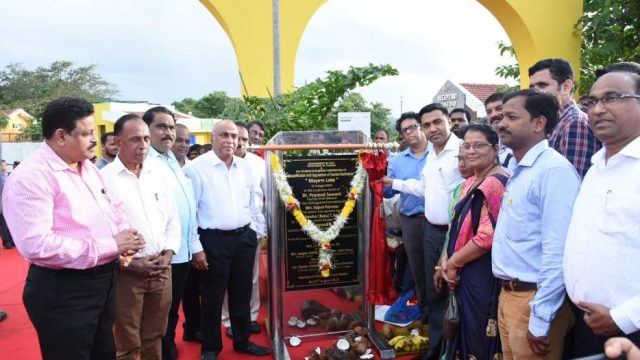
Mayem Lake has now been made more tourist- friendly
Dr. Pramod Sawant, Chief Minister of Goa, inaugurated the beautification and up-gradation works undertaken at Mayem Lake on 27th August 2019. He also launched the Bungee Jumping Site there. Mayem Lake is a famous tourist spot for boating or just relaxing and enjoying the scenery. The works undertaken include the development of approach road and parking area for around 57 cars, 40 two-wheelers and 10 tourist buses with a 12m wide approach road. A ticketing booth and tourist information office has been put up at the entrance. The walkway lets the differently-abled move around freely. There is a natural trail, where people can feel and experience the lake view and natural beauty. The existing lake retaining wall and parapet has also been strengthened. Picnic spots have also been developed. Children can enjoy in the play area with swings, see-saw, slopes, etc. To add to the fun, there is now an air-conditioned mirror maze, a duck house, and an amphitheatre (with a capacity for 120 people which can be increased to 200) for showcasing the local folk and cultural dances. Other facilities include a souvenir shop, potter huts to promote local artisans, landscaping, drinking water facility, restaurants, etc. 20 new boats and a jetty with a terminal building for queuing purpose and lakeside […]
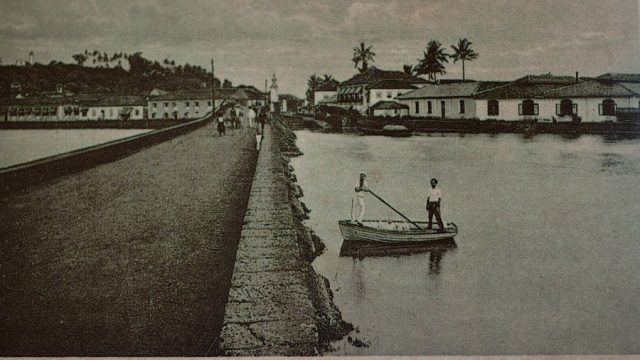
A sneak-peek into life in Goa decades ago
Have you ever wondered how Goa was in the past? A simple 82-year-old Goan lady shares details about her life with us. Sheryl Gonsalves | NT GoGoaNow What was Goa like during your youth? There was unity in the family. My mother used to go out of the way by making less for the family and giving the neighbour. My food diet was usually rice and curry. Chicken and other meat was a luxury which was eaten for festivals. Beef was rarely consumed but pork was the most common thing. There were no fridges so we made dishes that could last for some time. I also usually had pulses, beans, pumpkin, gourd, and long string beans. A lot of superstitions were believed in those days. We were told to not go out at night because evil spirits are roaming. On ‘All souls day’ people believed that the souls will come and drink water. They would keep food on top of the roof for the souls. Another superstition was that after midnight a headless evil man/ spirit will roam with a stick. So if people heard any sound like a stick beating something, they would put the lights off and hide […]
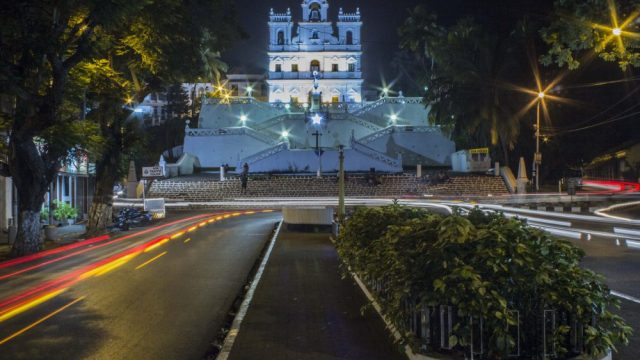
Backpacking Guide: Panjim
Lush green trees and the pristine Mandovi River flowing are notably one of the few things one will see cruising through the beautiful City of Panjim. Panjim being the capital city of Goa calls many visitors. Cruising through Panjim will definitely take a travel thirsty wanderer back in time to the Portuguese era. Fontainhas Fontainhas is famously known to be the Latin quarters of Goa has proven to be a very photo-worthy location for many. The feature of this place is Portugal infused architecture. Walking through the lanes of Fontainhas you’ll notice walls painted in hues of blue, yellow and strip white and that’s only the tip of the beautiful architecture. Walking through the lanes it’s definite to find many cafes and art galleries. Dive deeper into the architecture as you walk into the art galleries. Our Lady of Immaculate Conception One of the most famously known Churches in Goa is the Our Lady of Immaculate Conception Church. The church stands tall in the center of Panjim and receives hundreds of visitors on a daily basis. The church’s white color instantly grabs the eye. Another feature of this church is its zigzag stairs that lead to the church. The church […]
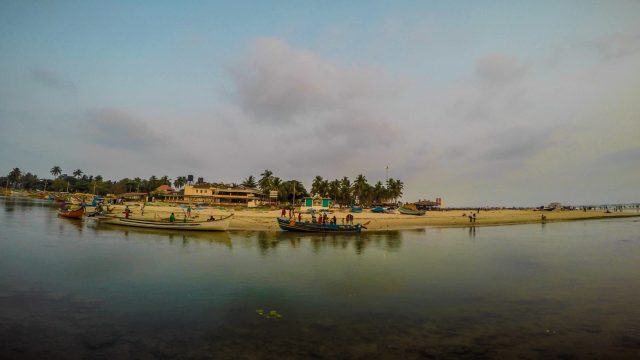
Backpacking Guide: Baga
Want to experience the nightlife as well as the serene beaches during a tight vacation? Baga is the place to be! Baga is indeed one of the most serene yet commercialized places in Goa. Baga, a small village, along the coast of Goa is nothing but beautiful for the traveler who is on a time limit. Baga creek Baga creek is the perfect place for you to sit and watch the sunset. Right next to Baga beach lays the creek and it has one of the most beautiful views. The picture perfect place makes it a get-away to few locals who come fishing daily and also a view of the ever buzzing Baga beach. The creek is surrounded by beautiful rocks with the waves clashing against it. Saturday night market Another place to visit whilst in Baga is the Saturday Nite Market. As the name specifies, the market is open during the nights. The vast number of stalls sell clothes, jewelry and other kinds of artistic pieces. They also have food stalls that’ll help curb that mid-night hunger! They also have an open stage which gives upcoming talent showcase their work. Baga tibetian market Baga Tibetian Market is another flea […]

Who says a lockdown should be boring?
Are you one of those people under lockdown going crazy with boredom indoors? Here are some ideas to help you make your time at home fun and productive: Catch up with family and friends There must be people you haven’t spoken to for a long time. Call them and recollect cherished memories together. Reach to those who are alone and support them during these times. Learn something new Sometimes life gets so busy that we don’t get time for other things. Learn to play that piano that’s gathering dust in your house or practice new dance moves by watching online videos. Try your hand at stitching, embroidery, etc. You can even complete an online course, take up the task of speaking a new language, learn to do basic home repairs, programming, carpentry, and so much more. Have an indoor photo-shoot This is an idea which can be loved by smartphone owners having social media accounts. Take selfies, dress up if needed, and capture creative photos indoors by making use of props, shadows, using window light diffused with shutters, taking macro shots of objects, etc. There are a lot of ideas online where people use items like sieves, […]

When a fashion designer is in lockdown…
Life changed a lot as a lockdown was imposed on Goa. Some people loved the free time while others got jittery. Philu Martins, a fashion designer from Goa, speaks to NT GoGoaNow about her life during lockdown. Sheryl Gonsalves | NT GoGoaNow Picture Credit – Shivang Mishra I NT GOGOANOW There is quite a difference between Philu’s daily routine before the lockdown and now. The bubbly fashion designer keeps herself busy with reading, housework, and exercises. “It’s a much healthier lifestyle. I’m eating more nutritious food and I love playing with my lovely dogs.” Philu doesn’t think she’s a good cook but that hasn’t stopped her from trying out Goan recipes. “I really miss going out but this is a much required break which allows me to spend time with my family, and we are praying together and eating together. I’m blessed to have this housewife experience and I’m enjoying but I wouldn’t want it to last forever,” she reveals. Philu also misses her clients, staff, working with weavers, and the practical part of being a fashion designer as her workshop is closed but she grateful for the holiday. For Easter Sunday she was supposed to have a fashion show […]
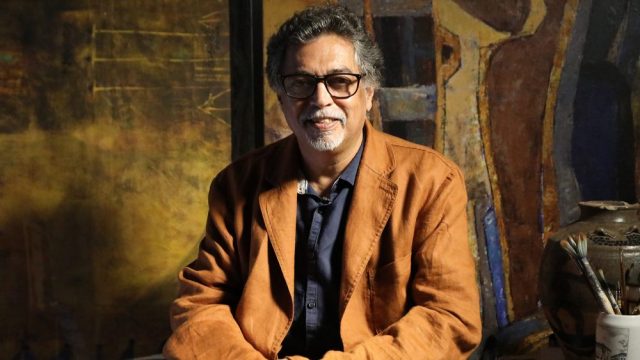
In-conversation with Subodh Kerkar – Life during Lockdown
Why should you talk about art during the coronavirus? Subodh Kerkar, founder of Museum of Goa, answers this question while in conversation with NT GoGoaNow – “Art helps a lot during lockdown. Things like music, drawing, and cinema, makes life more bearable and enjoyable. Art is what makes us human.” Sheryl Gonsalves | NT GoGoaNow Subodh reveals that he’s been working on five children’s books which he didn’t get time for before. He has spent his lockdown days reading, drawing, and having online lectures for schools. This passionate artist is also studying art education for children and is trying to come up with new syllabi for kids. He is inspired by an eye-opening book that says that a person doesn’t have to be an artist to teach children art. “I’ve never had a better time in my life than this past 1 month. Because of the uninterrupted time, I’ve done a lot more works this month than I’ve done in the past 1 year,” Subodh says. Normally he used to work at his museum till 7 pm or later, but now he walks near the fields of Saligao everyday for 3-4 hours and has lost weight. When asked about the […]
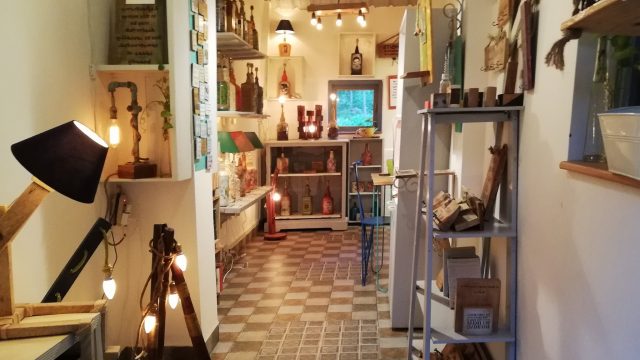
A talk with a lady who creates Beauty out of Waste
“I’m looking forward to a new normal. I haven’t thought that far ahead. Let’s take one step at a time and this too shall pass,” says Sharmila regarding the lockdown and the Covid-19 situation. Sheryl Gonsalves – NT GoGoaNow Sharmila, the owner of ‘Kitsch Bits’ creates beautiful items out of waste material. The pandemic affected her sales, which she expected, as nowadays people are more careful with their money because of the economic situation. During the lockdown, her time was spent doing housework, practicing woodburning, different painting techniques, experimenting with new waste products, and creating new looks for her works. The lockdown wasn’t boring for her. She even tried to knead her own bread when bread wasn’t available. However, Sharmila did get frustrated sometimes as she didn’t always have the material she needed to create her craftworks. All the housework led to tiredness, but what made her feel good was performing kind acts like feeding stray animals. She had plans to go to France this October but unfortunately had to cancel her trip. Sharmila suggests buying groceries once a week and carpooling instead of coming and going to the market so often and causing more pollution. She says: “We need […]
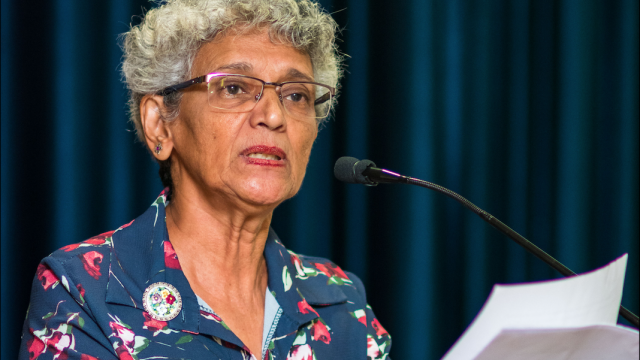
Catching up with playwright Isabel Vas – Life during Lockdown
Goa got to see wonderful English plays because of a certain creative lady called Isabel Vas. NT GoGoaNow catches up with her to find out what she’s been up to these days. Sheryl Gonsalves – NT GoGoaNow “During the lockdown I was alone. Traffic had stopped. Everything was completely silent. The silence brought the birds back into my garden which I enjoyed. For some days I wasn’t able to get groceries but something wonderful happened. Neighbours and other people helped me get food which was very touching,” Isabel reveals. She kept herself occupied with a bit of reading, gardening, and writing. The days were peaceful and relaxing and she used to sit quietly and enjoy the silence. Isabel reveals that she was holding auditions for a new play of hers, but it got cancelled. Having any plays now is a big question mark for her. She has noticed that people like writers, painters, and musicians have become extremely creative during these days. “Coming up with a play is a slow process so I haven’t done anything specific,” says Isabel. She misses her students at Goa University. When asked about the future, Isabel replies: “I’m looking forward to changes in this […]

Smoothie Recipes from Taj Hotels
Chefs share smoothie recipes to beat the heat. GRANOLA & FRUIT SMOOTHIE Ingredients:1 banana sliced1 apple medium (Peeled & Diced)1/3 cup plain Greek yoghurt1/4 teaspoon cinnamon powder1tbsp. maple syrup or honey1 tbsp. flaxseed powder1/2 cup granola1/4 cup ice Method:Crush granola coarsely in the blenderAdd Greek yoghurt, soy milk, and honey to blend it wellAdd the rest of the ingredients and blend until smoothVoila! Granola smoothie is ready AVOCADO SUPER SMOOTHIE Ingredients: 1/2 cup of almonds & walnuts1 ½ – 2 cups of spinach leaves chopped1 firm ripe avocado 1 ½ cups almond milk 1tbsp. of liquid apple syrup or honey1tbsp. sunflower seeds1tbsp. pumpkin seeds Method:Add mixed nuts (almond & Walnut), sunflower seeds and pumpkin seeds in a blender and blend it wellAdd spinach, avocado & soya milk in a blender. Blend until smoothAdd liquid apple syrup or honey and blend it for another 10 seconds.Pour into glasses and serve. PEANUT BUTTER AND HONEY OAT SMOOTHIE (from Executive Chef Nitin Mathur, Taj Santacruz) Ingredients: 2 cups of rolled oats (pan-roasted)½ yoghurt1 cup almond milk1 large banana3tbsp. peanut butter2 tablespoons honey1tbsp flaxseed powder Instructions: Place oats in blender and processPour milk into a blender and allow processed oats to soften in […]
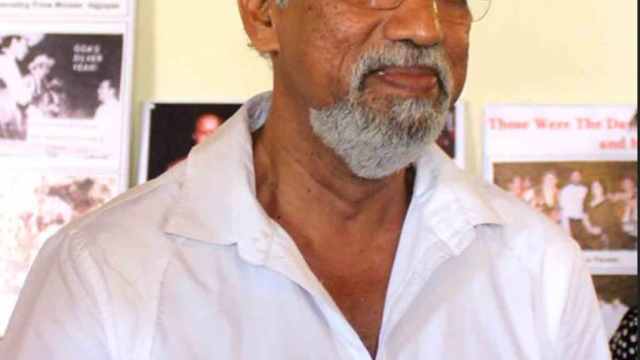
Award-winning musician talks about life now
Music is a language everybody understands. Alvaro Pereria, the musician who has helped boost classical Western music in Goa, talks to NT GoGoaNow about his days during the past few weeks. Sheryl Gonsalves – NT GoGoaNow This Goa State Cultural Award holder spent his days mostly playing badminton, reading, and practicing classical music. He was supposed to perform at a music concert in June but it had to be called off due to the pandemic. “We worked on a whole new Schubert trio (for the concert) to try something new. It takes more than forty minutes to perform,” Alvaro reveals. They also practiced Beethoven pieces and a Mozart trio. Alvaro usually composes church music and performs at weddings but all that is now cancelled. He feels that music can help quite a lot and didn’t find the lockdown boring. He says, “Inspiration is there everyday whether there is a lockdown or not.”
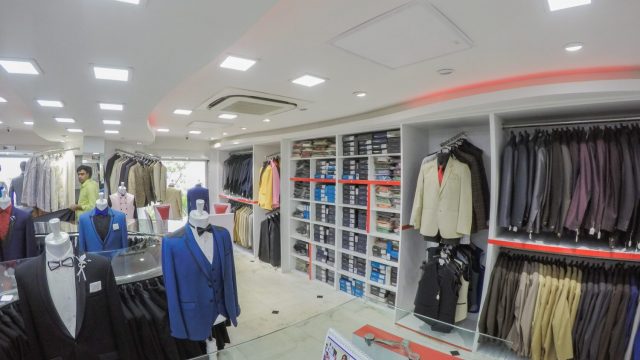
D’ziners owner gets Candid
If you live in Goa, you have probably seen D’ziners- a bespoke tailoring clothing store. Andrew Fernandes, the proprietor, has a little chat with NT GoGoaNow to share what changes have happened in his life. Sheryl Gonsalves – NT GoGoaNow Picture Credit – Shivang Mishra I NT GoGoaNow Andrew used to be a very busy man. He used to start with his Margao store and end up at his Mapusa store. Now he uses his time to play badminton, help out in the kitchen, pray with his family, and spend time with the Bible. He even worked on some paintings which have Biblical themes. Andrew opens up about his difficulties and shares that he may have to close down some of his stores as he’s currently unable to pay the rent, electric bills, and salaries. He reveals, “We are hardly getting customers. Clothing is a lifestyle business. Now, food is more important for people than clothes.” Also, there are no events for people to dress up for. When things are well in the future, Andrew has a dream of using his beautiful Benaulim house to open up a boutique restaurant. He says, “No one can predict anything. I’m looking forward […]

A chat with a young crochet enthusiast
Ornella Menezes, a teen from Colvale, loves to keep herself busy. She creates crochet jewellery which was even showcased for the Schulen Fernandes for Wendell Rodricks Zentangle Collection at the Lotus Make-up India Fashion Week in Delhi. She tells NT GoGoaNow that her normal days consisted of school and homework but now, during the lockdown, a lot of her time has been freed up for crochet. While everyone else’s businesses have been negatively affected, Ornella reveals that her sales increased in the midst of the lockdown days. The crochet items she usually creates are doilies, table runners, jewellery, and centrepieces. A day in her life consists of mostly creating crochet works, playing the piano, paper quilling, and taking online singing classes. The free time helped her get a lot more ideas by taking inspiration from Pinterest posts. She hardly gets bored and enthusiastically says: “I’m looking forward to buying new threads” for her crochet works. Sheryl Gonsalves | NT GoGoaNow Picture Credit – SHIVANG MISHRA II NTGOGOANOW
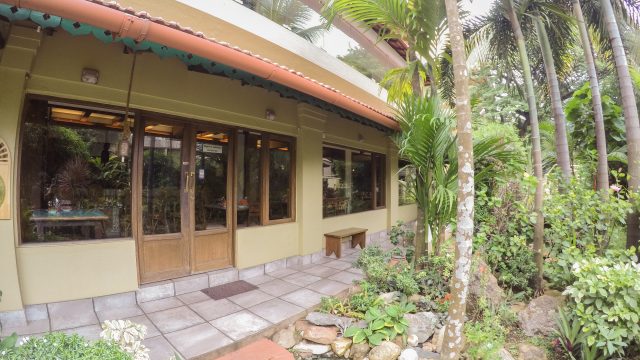
Mum’s Kitchen owner shares Thoughts about Life
For Maria Martins, the proud owner of Mum’s Kitchen restaurant, the lockdown has been quite eye-opening. She has a heart to heart chat with NT GoGoaNow and shares her thoughts and reflections during Covid-19. Sheryl Gonsalves | NT GoGoaNow Picture Credit – SHIVANG MISHRA II NTGOGOANOW The lockdown was a bad phase for her as Maria was used to a hectic life and had to adjust to a slow-paced lifestyle. However, it was good in a way because she realized many things about life like the fact her worries are fewer in comparison to other people who are less fortunate. She has now comprehended what is actually required or not required in life. The bond between her and her workmates became stronger as she got to know the problems that they go through. “We can do away with a lot of things and still be happy. Life doesn’t revolve around money. It needs human touch, love, and respect. We’ve to respect everyone no matter what they work as,” Maria says. During these days she spent her time gardening and also brushed up on stitching and embroidery which she hadn’t done since her college days. At the moment she is selling […]
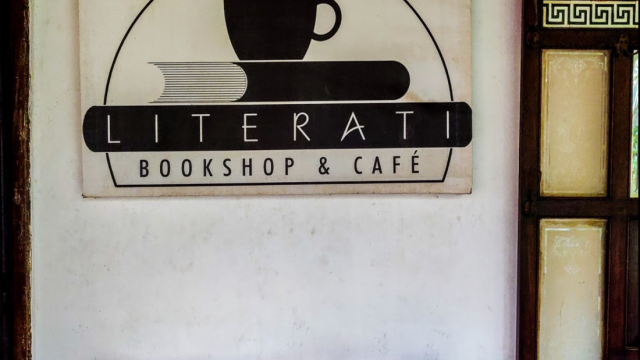
A simpler life is better ~ Literati Bookshop Founder
“We’re lucky to have a roof over our heads and our basic needs met,” says Divya Kapur, the founder of the Literati Bookshop in Calangute, while talking to NT GoGoaNow. Sheryl Gonsalves | NT GoGoaNow This ex-lawyer started focusing on what she could do at home during the lockdown. She checked in on her friends and family to see if they were okay. Divya jokingly shared that she’s not that productive but she spent her time reading, watching television, and engaged in some physical activities. Speaking about the Literati Bookshop she reveals that they’re encouraging people to opt for home delivery. Now they hold virtual book club meets but movie screenings and book launches can’t happen. Divya is of the opinion that a simpler life is better. She says, “I’m looking forward to going to the beach, swimming in the sea, and watching the sunset.”

A tribute to the cashew
Dedicated to the people of Goa, Goan musician O’luv has come out with his new music video ‘The CASHEW song of Goa’ Goan musician O’luv has released his new music video single ‘The CASHEW song of Goa’ on his YouTube channel O’luv Goa. The video has been created over a span of three months, with site visits to understand the process and to draw inspiration for the lyrics and to create the visuals. From the picking of the tree-ripened cashew apples with the ‘tochni’ or ‘kantto’ [ a stick with a spur or thorn near the tip], to the separation of the nut from the cashew apple for the extraction of the juice at the ‘kollbi’, to the fermentation and the two distillations at the ‘battie’ using the traditional clay-pot ‘lavnni’ as the condenser, most of the processes involved are covered in a song. The aim of the song is to celebrate the cashew (anacardium occidentale) that came from Brazil and became one of our own in Goa. We have found a number of uses for the tree, its nut and the cashew apple and it is now an integral part of the Goan culture and traditions. It is used […]

Beaches in Goa with less crowd
The shining sun is hitting the waves, making the ocean sparkle as it reflects the blue hues of the sky above. The gentle breeze and the calming sounds of the water make you slip into relaxation mode. However, there is one thing you may wish was different…. a beach that wasn’t so crowded! Written By: Sheryl Gonsalves Not to worry! Here is a list of beaches in Goa that’ll let you have a quieter, peaceful outing: NORTH GOA The North side of Goa has a notorious reputation for having crowded, noisy beaches. However, this isn’t entirely true. Here are some serene spots to visit for sand and sea… Morjim Beach This beach is quite famous for the Olive Ridley turtles who come to nest here and are helped by a group of volunteers who guard the nests and help the baby turtles get into the sea. The beach is also a favourite among Russian tourists, along with Ashwem beach close by, one will find signboards and menu cards in the Russian language. Mandrem Beach If you want to enjoy vast stretches of sand and water, this beach is the place to be! Colourful seashells dot the shores while little crabs […]

The Unwanted… The Abuser… The Dog…
Film: Belle et Sébastien, Nouvelle Generation Directed by: Pierre Coré Duration: 96 minutes A huge round of applause echoed throughout the theatre at the end of a film that was showcased at IFFI 53. This French movie, Belle et Sébastien, Nouvelle Generation, even left some people in tears. While reading the description of the movie, I was expecting a typical dog film which has a dash of cute elements and heartwarming scenes sprinkled in. However, I was blown away after watching it as there were so many elements and layers that made it epic and almost surprising. The opening scene started with the main character, a 10-year-old boy named Sébastien, an aloof-looking character, who saw someone getting bullied and decided to take action and save the victim. Unfortunately, that resulted in an unexpected result – the bully started chasing Sébastien and ended up getting hit by a car! This incident led to him being taken reluctantly for a mountain vacation where he had to stay with his grandmother who seemed to show no enthusiasm with the arrival of her grandson. These scenes were filmed at a place between France and Spain. It was a visual treat on so many levels. […]

‘Rediscover Goa’ with Airbnb and experience the true beauty of the sunshine state
*A week long celebration of all things Goan announced in collaboration with Goa Tourism Department* Airbnb in collaboration with the Goa Tourism Department, launches ‘Rediscover Goa’, a week-long celebration of Goa’s vast cultural diversity beyond its beaches and dazzling nightlife. Cultre, a creative and cultural enterprise that seeks to promote India’s pluralistic cultural heritage through content, products and experiences has been onboarded as the knowledge partner to help curate the experiences and bring to life all things Goan. … The ‘Rediscover Goa’ celebration will take place from December 12-18, and will offer 20+ specially curated unique Airbnb Experiences hosted by local experts highlighting the eclectic culture, rich heritage, musical traditions, culinary delicacies and thriving landscapes of Goa across the Northern and Southern districts of the state. … This week-long celebration of Goa and its culture aims to highlight how the state’s inherited traditions and cultural legacy form the basis of Goan living even in this day and age. The experiences will not only let one indulge in the many bounties of Goa but also help engage with the vibrant local culture. The existing pockets of lesser-known curiosities that make Goa unique will now be accessible for all enthusiasts to experience. […]
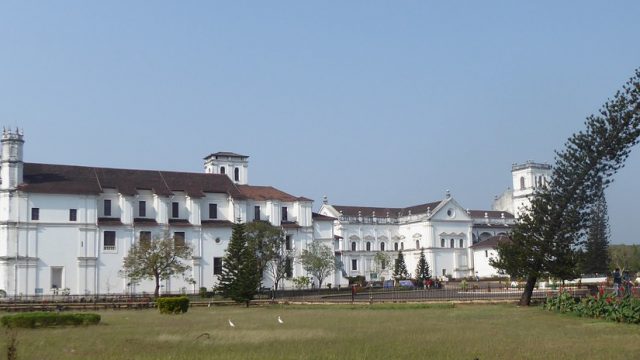
Backpacking Guide: Old Goa
Old Goa is a small town in the North Goa district. Portugal-styled churches are famous for their architecture and impeccable history behind them. Old Goa, best known for its churches, is the perfect place to be for the traveller who wants to drown himself in the beautiful Portugal architecture of Goa. NT GoGoaNow gives you a sneak peek into some places you should visit when in Old Goa! …. …. …. Basilica of Bom Jesus As you enter Old Goa, you’re definitely going to see the monumental Basilica of Bom Jesus. The church was consecrated in May 1605 by Fr. Alexia de Menezes, the Archbishop of Goa. The church is a magnificent example of Baroque architecture in Goa. The church is well known as it embodies the relics of St. Francis Xavier, who lays to rest in a silver casket within the church. The relics are taken down every 10 years for an exposition which calls forth millions of devotees. The architectural monument comes under the UNESCO World Heritage Sites. …. Se Cathedral The Sé Cathedral de Santa Catarina, known as Se Cathedral, in short, is known to be the largest church in Asia. The majestic church stands strong before […]

Tour Goa in a helicopter!
Who knew flying high had so many benefits? Hawk Soaring Aerospace Pvt Ltd has started premium helicopter services in Goa for the first time. Here are the services they offer: Executive Charters Relish the flexibility of your schedule and achieve more on your business trips through exclusive day-trip charters! Interstate Transfers Reduce distances and do more on your workday or holiday as you smoothly travel across interstate borders! Airport Transfers Reduce travel time and avoid traffic jams as you fly from Mopa and Dabolim airports to your resort in air-conditioned comfort! Customised Heli Tours Delight in fascinating vistas and a Hawk’s eye view of Goa and explore places such as Hampi, Kolhapur and Shirdi like never before! Joy Ride (Per Person) *8000/-only Feel the adrenaline rush as you glide through the sky in an exhilarating 10-minute joyride across the State in the classic Agusta 119! (Time Slot: 11 am -12 pm, 3 pm – 4 pm.)

Goa in 48 hours – For the Adventurous
You’ve come to Goa and your adrenaline is pumping. You have so much energy and seeing the tall coconut trees and clear blue skies makes you even more pumped up. DAY 1 Use all your excitement to start your first day with a trek! If you were in awe of Goa’s natural beauty from the get-go, be prepared to fall even more in love. There are a plethora of organizers who take you to gorgeous places like the famous Dudhsagar waterfalls or some more hidden places that most tourists haven’t even heard of. The sights of the green foliage, chirping birds, and fresh air will surely make your heart sing. There are high chances that a delicious local lunch is part of your tour package. After you come back and rest, head out in the evening to a beach. If you’re tired, relax on the warm sand and relish the scenery. Otherwise, draw out your thirst for adventure again and try out exciting watersports. Parasailing gives the most thrills as you’ll get to glide in the air and watch the frothy waves below. If you are in North Goa, have a delicious local dinner at Florentine’s where there is a […]

Enjoy 5-star dishes made from Indian millets at the Goa Marriott!
Being able to turn super humble ingredients into dishes worthy to be served at a 5-star resort is no easy feat. However, the Goa Marriott Resort & Spa have done just that through their ‘Millet Food Festival’. Doesn’t the word ‘millet’ conjure up some very boring dishes in your mind? Well, think again! Some of the millets they have used are Foxtail (Rajasthan), Ragi (Karnataka), Jowar (Maharashtra), Kodo (Telangana), and more. Now let’s get into the interesting part… the dishes! The first one is assorted millet crisps with smoked Lehsooni chutney – a simple, pleasant snack. The next one is like a superfood chaat! It contains puffed foxtail, date chutney, and cherry tomatoes. Another Indian classic dish that they have given a ‘millet twist’ to is the humble idli. It is a ragi idli with curry leaves and a red chilli tempering where you can’t stop at one piece. They even added burgers and tacos to this special menu! The burger contains Kodu millet, foxtail buns, and silken tofu instead of cheese to make it completely vegan. A dish on the menu that I was least excited about was the barley fried rice, an unassuming plate of food that turned […]

Serendipity Arts Festival announces its curators for December 2023
The largest inter-disciplinary festival of the arts in South Asia is scheduled from the 15th to the 23rd of December 2023 in Panaji, Goa A diverse line-up of interdisciplinary projects and initiatives will be conceptualised by a panel of distinguished curators spanning the performing, visual, culinary arts, and craft. Sandeep Kumar Sangaru and Anjana Somany will be curating the section on Craft and bring forth varied crafts practices that blend traditional and contemporary practice. Quasar Thakore Padamsee who curated last year’s theatre section of the festival is back to helm the Theatre segment of the festival that will showcase an eclectic selection of plays. Food is closely linked with festivities and is an indispensable element of the festival, and for this edition, Chef Thomas Zacharias and The Locavore Team, will curate the important Culinary quotient of Serendipity Arts Festival through a gastronomical journey that ties people and cultures. Bickram Ghosh, who has curated the festival’s previous edition, along with Ricky Kej will curate the Music section with a wide range of concerts covering diverse genres and addressing various social-cultural ideas and topics. Geeta Chandran and Mayuri Upadhya will put together classical, experimental and contemporary dance performances and workshops. Visual Arts […]

Delightful Summer Fruits of Goa
The heat is intense but it’s the time of the year that seasonal fruits are available in plenty Seasonal fruits are popular among locals in Goa, especially during the summer. With the popularity of social media, these summer fruits are searched on Google and tracked down in the markets. This has increased demand and has caused the prices to go up. Mangoes, the king of fruits, have always been the favourite. The ‘Mankurad’ is so superior that in the Panaji market, people spent about Rs 4,000 a dozen after the mangoes came to the markets in March. The rates have stabilised but ask the elders around and they’d say, “People would give them to us for a song (free). We never had to think twice before buying Mankurad mangoes but today it’s out of the common man’s reach.” Raw mangoes are coveted too. Used for pickles, preservatives and to go along with urrack with some salt and chilli, the markets are flooded with raw mangoes. ‘Panne’ is a cooler made from raw mangoes. Fresh tender cashews (bibbe) are used in various recipes. These cashews are plucked and peeled to get tender cashews. A favourite of Goans, there’s so much joy […]

Get high on mangoes with the ‘Mangoholic’ Festival at Goa Marriott Resort
Come summer and mango is one of the fruits on everyone’s mind. One can relish the fruit in its many moods at the ongoing ‘Mangoholic Delights’ till May 31 from 9 a.m. to 10 p.m. at Goa Baking Company, Goa Marriott Resort & Spa, Miramar. There is an array of bakes, pastries, smoothies, shakes, ice creams and more. RAMANDEEP KAUR & SHERYL GONSALVES | NT In cakes, there is the Alphonso mango boomer (classic mascarpone cream with fresh mango compote), spice mangles mangozza (sweet chili brule, mango cremeux and almond financier), kesar mango cheesecake (mango cheesecake, Oreo crust and chantilly cream), ‘aam panna’ with strawberry confit (‘aam panna’ mousse, pistachio sponge and crunch) and payari mango and coconut cake (coconut dacquoise and payari cream). Pastries include mango cream tart (sweet paste, cloudy cream and mango), classic mango popsicles (mango mousse and crunch), mango crepe cake (crepe, mango ganache) and ‘aam petti’ (vanilla sponge and mango cream). There are two types of ice creams and macarons in flavours of mango basil, raspberry mango and just mango by itself. Chef de Partie (pastry) Gouri Khanna says, “We have showcased our fusion and classical desserts of mango. We have homemade ice creams, macarons […]

Spend your afternoon learning about snakes!
Herpactive, an organisation dedicated to reptile conservation, is organising the first-ever ‘Serpentdine’, an afternoon filled with snake tales, trivia, and the opportunity to connect with like-minded individuals. The event which will be held on June 18, at The Pier-Seaside Bistro, located at the Cruise Terminal in Vasco, aims to celebrate the remarkable work carried out by men and women working with snakes in Goa. Participants can expect insightful conversations about rescue and release protocols, where experienced professionals will share their knowledge and exchange best practices. The event will also feature an array of captivating snake tales, allowing attendees to delve into the rich world of snake mythology, folklore, and awe-inspiring encounters. Lucky draws will offer attendees a chance to win exciting prizes, while a silent auction will provide an avenue to contribute to the work of those working with snakes in Goa. Moreover, attendees will have the opportunity to interact with renowned figures from the snake world, connecting with influencers and experts who have dedicated their lives to the study and conservation of snakes. Snake hooks will be available for purchase, ensuring everyone can participate and engage with these magnificent creatures. There will also be captivating displays and stalls offering […]

An unforgettable culinary journey
The new menu at Fortune Miramar will leave you spoilt for choice with fascinating options from cuisines around the world SHERYL GONSALVES | NT It was a day when the sun struggled to shine through the clouds. The rain beat down against my helmet and didn’t show any signs of letting up. However, even though there were partially waterlogged roads and traffic jams, there was one thing that kept me going – I was invited to try out the new menu at Fortune Miramar curated by executive chef William Dias. The new menu themed ‘Savour’ took two months to curate. Entering the Orchid restaurant in the hotel was a sight for sore eyes. The classy bright interiors were a welcoming visual contrast against the gloomy skies. My colleagues and I enjoyed the colourful mocktails brought to our table and then started digging into the Mezze Platter which had a variety of different dips like Muhammara, Hummus, Tzatziki, Olive Tapenade, Cauliflower Tartar, and Fatoush Salad. They were perfect flavour bombs with spicy and creamy notes. The crispy pita bread elevated the eating experience by providing texture. Mezze Platter We then had Malai Broccoli which was marinated in cashew cream, yoghurt, and […]

The marigold man of Goa
With a deep understanding of agriculture and a desire to bring locally grown marigold flowers to the Goan community, Amona-based farmer Krishna Sinari has embarked on the high-tech venture of marigold farming. RAMANDEEP KAUR | NT Inspired by the need for locally grown marigold flowers, Krishna Sinari, the owner of Prakriti Farm Products, has started a high-tech venture of marigold farming in a 3,000-square-meter plot. With a total of 5,000 plants, his farm boasts vibrant yellow and orange marigold flowers. The inspiration behind choosing marigold flowers as the primary crop stems, he says, is that even though Goa has a suitable environment for its growth, a majority of the flowers are brought in from other places. “Marigolds are essential for Diwali celebrations. So I chose to start my own marigold production to meet the local demand,” says Sinari, who holds a diploma in agriculture and has done various courses to enhance his knowledge in the field. Currently enjoying his first marigold harvest, the next crop of flowers will be during Diwali and later for Tulsi Vivah. After that, he will move on to the next crop. Sinari has previously cultivated hybrid chillies and lady fingers and plans to explore other […]
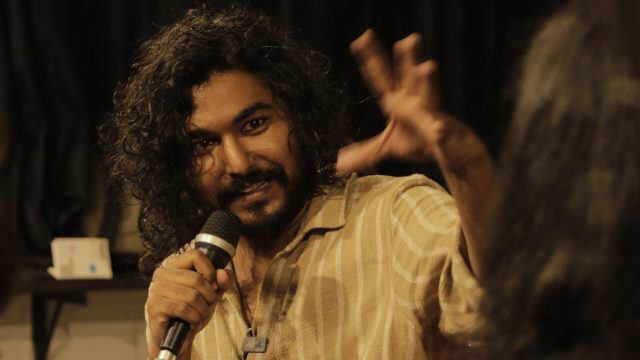
Goa-based musician ‘Discokid’ to perform at Serendipity Arts Festival 2023
Among the eight exceptional music artists handpicked for the B-side Music Production Residency programme, ‘Discokid’, a Goa-based musician will be performing at the Serendipity Arts Festival 2023. The 11-day workshop concluded in Olaulim recently and was organised by the Serendipity Arts Foundation. The eight artists namely Dzerouengmit Lepcha, Fatima Hakeen (Discokid), Lenix Lobo, Hasan Shahrukh, Govi, Ashel Unger, Rushaki Ghosh and Medhaj Dempo, delved deep into the intricacies of music production using Ableton Live, a digital audio workstation during the residency, which formally culminated on October 20. The residency was mentored by industry experts, including Jay Pei, Megha Balani, SHFT and Puneesh Suri. Fatima Hakeen aka ‘Discokid’ is a musician and producer based out of Goa and has been featured in well-known online music shows like Mixmag Goa and Worldwide FM. Over the eleven-day intensive program, the participants explored a myriad of techniques, from working with audio clips and MIDI basics to advanced production methods, honing their skills and collectively broadening their creative horizons. “Each participant brings a unique flavour to the table: from Dzerouengmit Lepcha’s soulful melodies to Discokid’s groovy beats, Lenix Lobo’s experimental sounds and Govi’s fusion of Carnatic vocals with indie and alternative genres. Hasan Shahrukh, with his expertise in […]

Fascinating Goan films to start tomorrow at 54th IFFI
The beauty of film festivals like IFFI is that they offer an eclectic array films from various corners of the country bringing together a mosaic of stories told in different languages. This year also IFFI offers a specially curated package of Goan films which will be unfurled from tomorrow at various venues of IFFI. The Goan package starts with the screening of Konkani film Gathan directed by Dinesh P. Bhonsle at INOX Screen-4, Panaji tomorrow (24.11.2023). Here is a look at the films that are part of the Goan Films package and their scheduled timings: 1. Gathan Director: Dinesh P. Bhonsle Synopsis: A man named Kamlakar, who goes by the nickname Tatu, has a great relationship with his younger brother Babulgo. Despite their five-year age difference, they get along really well. Tatu works in the fishing industry, while Babulgo is settled in Mumbai. Tatu’s son, Sada, works for a local builder, while Babulgo’s daughter, Vedika, is married to an American man and works in America. Her marriage to an American is a source of pride for Tatu and the villagers. Babulgo plans a trip to Goa with the new couple to seek the blessings of the deity. Tatu makes all the necessary […]














